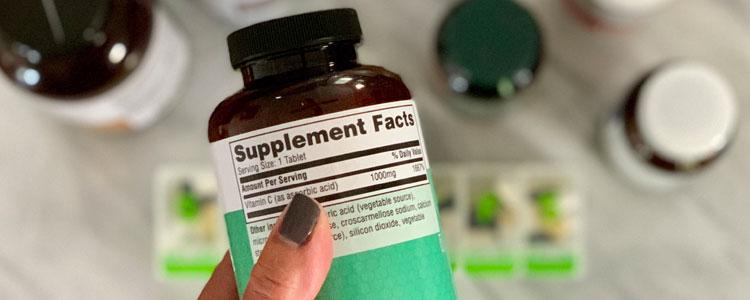Supplement soup
Now you heard me about eating healthy but decide for yourself that you want to go the extra mile. So, you begin to surf the giant internet department store that rhymes with glamazon for supplements that you found on google. (as a side note, there are so many things wrong in that sentence) There are, indeed, plenty of supplements that help prevent migraines and might even keep a patient off of prescription medications. If you decide to try a supplement, be sure to trial these options for at least a month to see full effects.
Magnesium works well, especially in younger patients. You want to take 400-500 mg daily for adults. This is particularly helpful in treating migraines associated with a patient’s menstrual cycle. While it is natural, it does still have a side effect so you still need to be wary. It can upset the stomach and even cause diarrhea in some cases. Magnesium can be found naturally in spinach, nuts, and whole grains. Riboflavin, or Vitamin B2, can also be helpful in preventing migraines. You should take 400 mg daily. It causes minimal side effects. The most alarming one is that it can turn your urine orange, so don’t be startled by that. You can find it naturally in meat, eggs, milk, green vegetables, and nuts. It can interfere with antibiotics so be sure to let your doctor know if you are taking any other medications. If you can’t find this vitamin by itself, it is certainly okay to take a B Complex vitamins.
Vitamin D has been mentioned to help with migraines but there is limited evidence that this actually does provide any relief. If you find that you are deficient and want to see if supplementing will help your migraines then you want to aim for 50,000 IU (international units) a week.
Co-enzyme Q10 will also show up on your web browser search. It is possibly effective but, again, there is limited evidence. The best recommendation is for 100 mg three times a day. It can be found naturally in liver, whole grains, and oily fish like salmon. It can interact with other medications so again be sure your doctor is aware of everything you take including things over the counter. Melatonin has some studies that show it can provide relief at 3 mg nightly.
Feverfew is another common herbal that will come up in migraine discussions. As you might guess by the name it was often used to fight fevers and inflammation. The latter part is what probably helps in migraines. The recommended dose is 50 mg per day. It can also interfere with blood thinners so beware.
Overall, there are many things we can do to maximize our nutrition and health in order to minimize our migraines. However, as mentioned some herbals and natural remedies can interact with other medications or make you feel worse, so it is still a good idea to coordinate with your doctor to make a healthy treatment plan.

